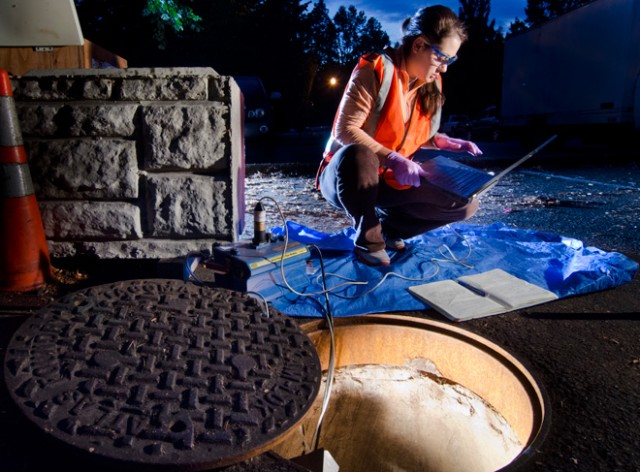 Researchers at the University of Puget Sound have a somewhat gross way of discerning just how much of an increase in marijuana consumption has occurred since legalization was made official.
Researchers at the University of Puget Sound have a somewhat gross way of discerning just how much of an increase in marijuana consumption has occurred since legalization was made official.
Using wastewater (sewage), the researchers can run tests to determine what kinds of drugs people are using and also tell in what concentration. It sounds rather filthy, and I’m guessing it probably isn’t a terribly sanitary activity to gather this stuff, but it does seem to offer an impartial way of determining the increase in drug use.
The team randomly took samples from sewage plants throughout the state prior to cannabis legalization. They will soon gather new samples and compare them to the pre-legalization set.
Some are concerned that this is a gross violation of privacy as you are essentially giving an entire population a urinalysis without consent. However, it does seem unlikely that any of that data could be traced back to a specific person. But who knows?
As long as the data is used responsibly and ethically, I don’t really see any harm in this and it will give some unbiased data. After all, it’s easy to lie to a survey. It’s not so easy to lie to the toilet.
I’m curious to see what is found.
“In 2008, [the research team] tested samples from 96 Oregon communities, revealed meth use in every one of them, cocaine use in 80% — especially cities — and ecstasy use in half of them but much higher in cities: Giving each town a snapshot of its particular drug problem.
The team concluded, “there was a lot of drug use across the state which says to me ‘we gotta work on this.’ It’s not – people can’t get away with saying ‘it’s not our problem, it’s not here’,” said [the team]. “It’s irrefutable. And that’s really important when it comes to this.”
The team also “said testing wastewater can show which drug policies are wasting money and which are working, and possibly mean spending less money on police, courts and jails.”
This could potentially lead to a more accurate approach when writing public health policy.









